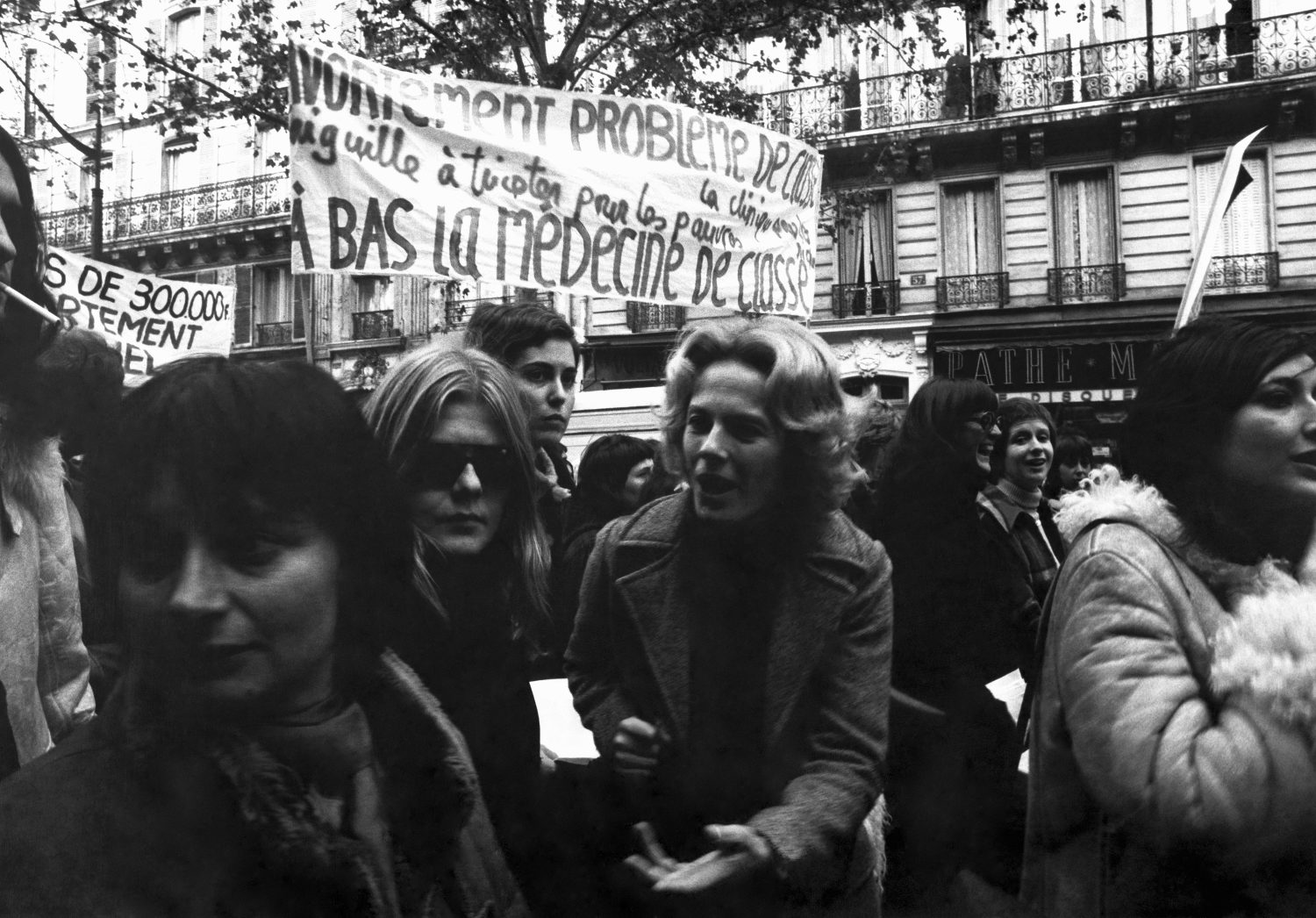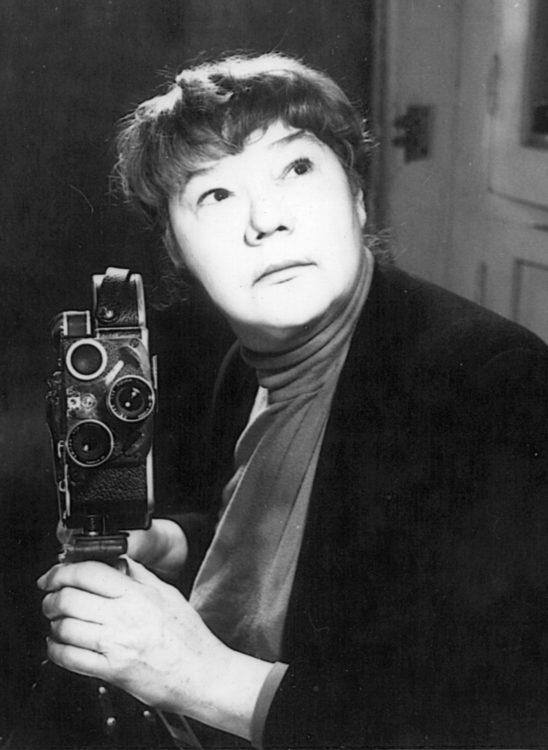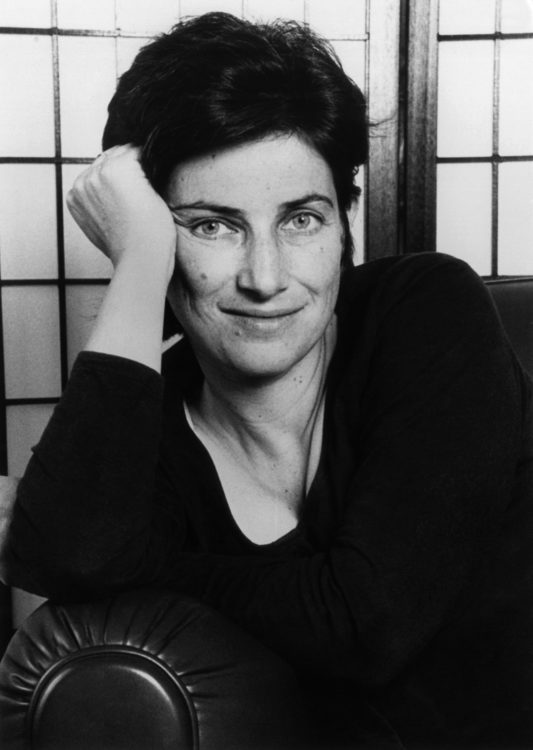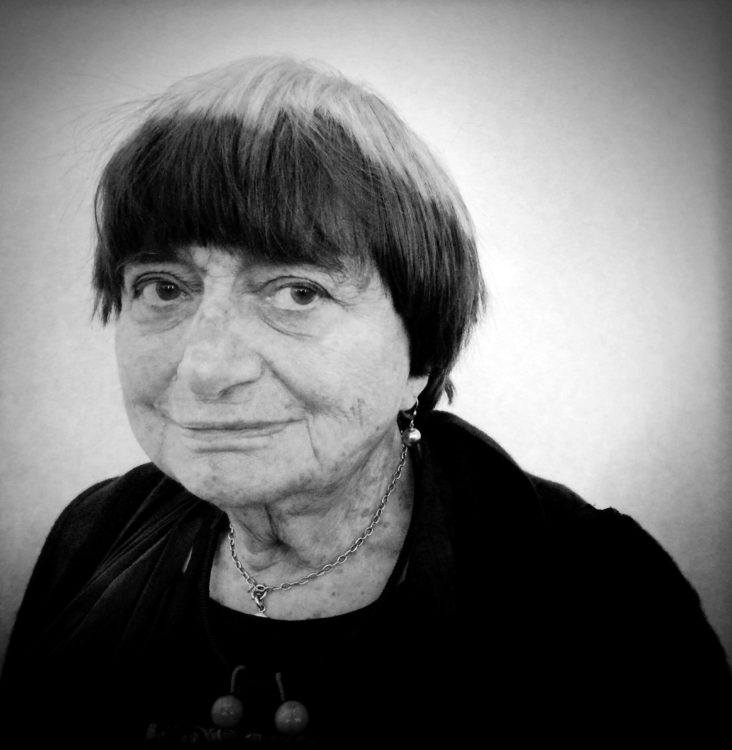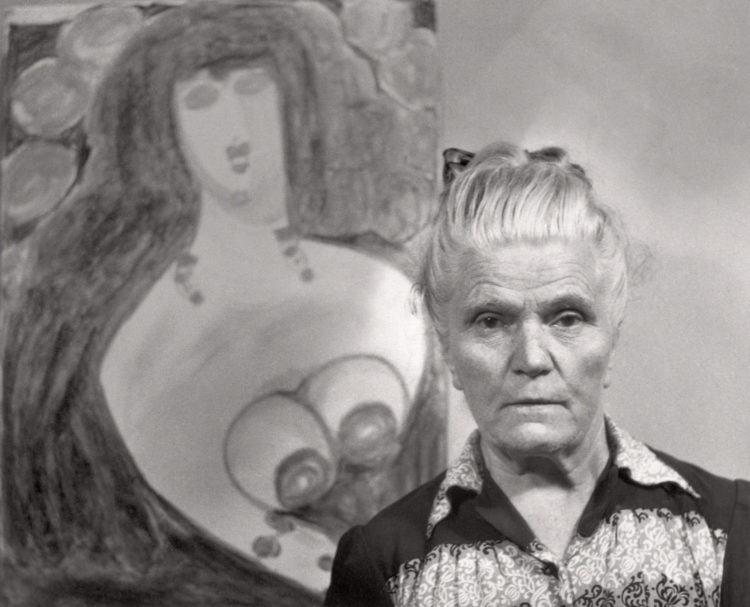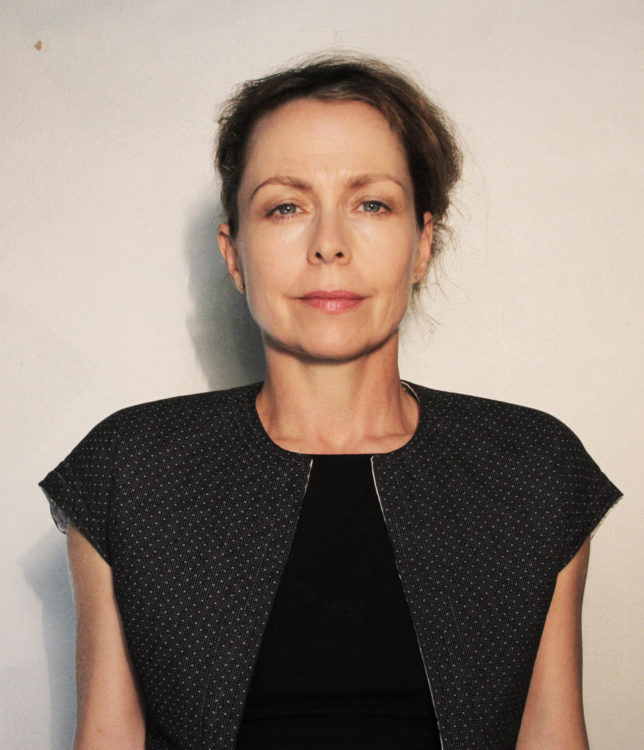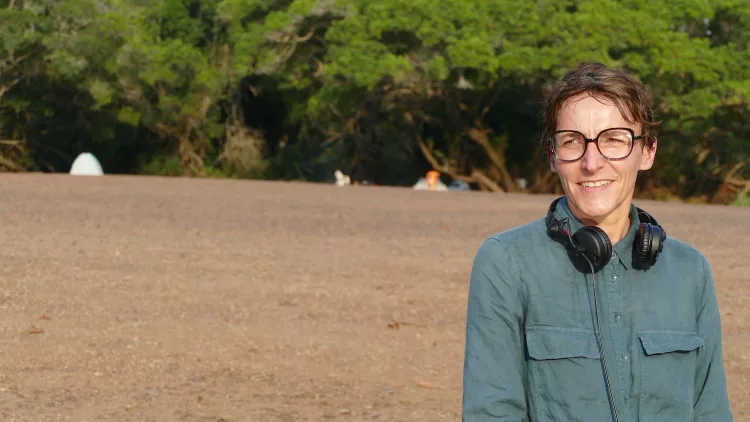Review
Carlos Santos, Delphine Seyrig et Agnès Varda lors d’une manifestation féministe, ca. 1972. © Carlos Santos / Agence Gamma, Rapho & Keystone, 2019
LaM Villeneuve-d’Ascq has collaborated with the Museo Nacional Centro de Arte Reina Sofía (Madrid) and with the Centre audiovisuel Simone de Beauvoir (Paris) for a retrospective exhibition devoted to French actress, video artist and feminist activist Delphine Seyrig (1932-1990).
The exhibition looks back at D. Seyrig’s involvement in the French feminist movement by examining her various activities as an actor and filmmaker.
Focusing on seven themes, with videos, films, photographs, and archival documents, Les Muses insoumises maps out a visual and media-based overview of the main political and feminist struggles of the 1970s and 80s: abortion rights, sexual freedom, living conditions of sex workers, rights of women political prisoners…
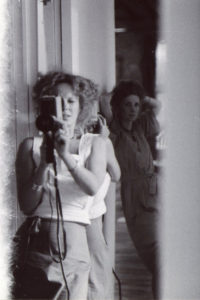
Anonyme, Delphine Seyrig et l’actrice Viva lors du tournage de Sois belle et tais-toi, 1975, Archives Seyrig
Although D. Seyrig began her career as an actress in the United States in Robert Frank and Albert Leslie’s now cult film Pull My Daisy (1959), the French public first discovered her in the 1960s, in films directed by Alain Resnais (Last Year at Marienbad, 1961; Muriel, 1963) and François Truffaut (Stolen Kisses, 1968). From then on, she unwillingly embodied the image of the idealised woman sometimes associated with Nouvelle Vague actresses.
The first part of the exhibition shows us that being an actress provided D. Seyrig with not only the starting point for a critical reflection on the various roles society assigns women, but also with the opportunity to denounce the inherent sexism within the film industry.
From the 1970s onwards, she was able to shed the image of her early career by working with filmmakers like Marguerite Duras (India Song, 1975), Chantal Akerman (Jeanne Dielman, 23, Quai du Commerce, 1080 Bruxelles, 1975), and Ulrike Ottinger (Freak Orlando, 1981), allowing her to coherently reconcile her work as an actress and as a feminist activist.

Irène Bouaziz, Delphine Seyrig pendant l’assemblée générale de préparation pour l’événement « Mutualité contre le viol », 17 juin 1976, Paris, © Irène Bouaziz, 2019
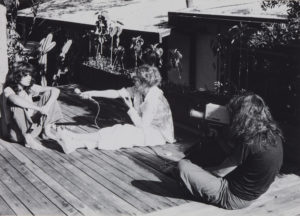
Anonyme, Delphine Seyrig, Maria Schneider et Carole Roussopoulos pendant le tournage de Sois belle et tais-toi, 1975, Archives Seyrig
In addition to her work as an actress, D. Seyrig became a vocal advocate for the French Women’s Liberation Movement (MLF). In 1971, she was one of the women who signed Simone de Beauvoir’s “Manifesto of the 343”1, and in 1972 received Harvey Karman, a psychologist and pro-choice activist from California, at her Parisian apartment to perform the first demonstration of his abortion technique in front of members of the MLF.2
A few years later, thanks to meeting Carole Roussopoulos (1945-2009)3 in 1974, she learned to use video and quickly understood how strong a medium it could be to defend her thoughts on emancipation and sorority.
Together with C. Roussopoulos and her childhood friend Ioana Wieder, she created the collective “Les muses s’amusent”, which was later renamed “Les Insoumuses”.
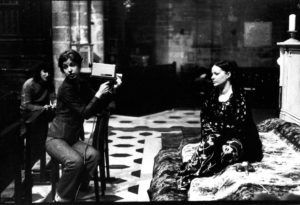
Anonyme, Carole Roussopoulos pendant le tournage de Les prostituées de Lyon parlent, 1975, © Fonds Carole Roussopoulos
In Villeneuve d’Ascq, the exhibition is interspersed with a number of works created by the collective to denounce the condition of women in the political world (Où est-ce qu’on se mai?, 1976), document some of their struggles (Les prostituées de Lyon parlent, 1975), and relay the words of other women (Il ne fait pas chaud, 1977).
Her most striking videos are probably Maso et Miso vont en bateau (1975)4, which she co-directed with Nadja Ringart and which succeeds in playfully deconstructing and ridiculing the all-powerful patriarchy with a delightfully caustic tone, and S.C.U.M. Manifesto (1976)5, which is based on one of the most radical feminist texts of the time, which called for the elimination of the male sex.
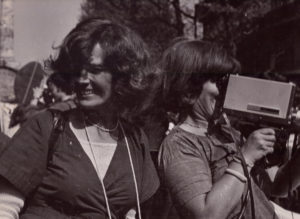
Micha Dell-Prane, Delphine Seyrig et Ioana Wieder filmant pendant une manifestation, 1976, © Micha Dell-Prane, 2019
The final rooms of the exhibition are devoted to the foundation of the Simone de Beauvoir audiovisual centre by D. Seyrig and Les Insoumuses in 1982. The members of the collective believed the importance of the creation of an archive collection and the necessity to pass on the history and rights of women to future generations.
In the time of the #MeToo movement and of renewed struggles over women’s bodies, the exhibition is a vital reminder of what feminism in France used to be and of the fighting yet to be done.
Les Muses insoumises. Delphine Seyrig, entre cinéma et video féministe, from 5 July to 22 September 2019, LaM (Villeneuve d’Ascq, France).
Curators : Nataša Petrešin-Bachelez and Giovanna Zapperi
“Le manifeste des 343”, Le Nouvel Observateur, 5 April 1971, No. 334.
2
Karman’s method marked a turning point in that it was less invasive and could be performed without a doctor’s intervention.
3
A French pioneer in video, documentary filmmaker and feminist militant.
4
While a guest on a television show on Antenne 2 on the occasion of the United Nation’s declaration of International Women’s Day in 1975, Françoise Giroud, then the French Secretary for the Condition of Women, was faced with remarks by a number of openly misogynistic men. The Insoumuses reworked the original show by interfering with the sound and image and adding comments to the video.
5
The video is based on the eponymous text written in 1967 by New York intellectual Valerie Solanas, the French translation of which was sold out at the time. V. Solanas, known for having shot Andy Warhol, was a central and controversial figure of 1970s feminism.
Mathilde Bartier, "Delphine Seyrig, the unbowed." In Archives of Women Artists, Research and Exhibitions magazine, . URL : https://awarewomenartists.com/en/magazine/delphine-seyrig-linsoumise/. Accessed 2 July 2025
